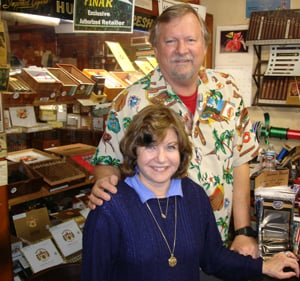
Two labor groups are pushing for the Long Beach City Council to adopt a “bill of rights” for hotel workers that would include limits on the square footage housekeepers can clean in a day.
The UniteHERE Local 11 hotel workers union and labor-allied Los Angeles Alliance for a New Economy are proposing that each hotel room housekeeper be limited to cleaning 4,000 square feet of room space in a single eight-hour shift. Any housekeeper who cleaned more than that would be paid time and a half for the entire day. Pay would double for a housekeeper who cleaned more than 5,000 square feet.
Labor groups said that heavy workloads have contributed to high stress levels among housekeepers.
Similar limits on workloads were enacted back in 2005 in the Bay Area city of Emeryville in a move that was packaged with a living-wage mandate for the hotels.
The bill of rights was proposed last year, but has been slow to gain traction among Long Beach officials, likely because the city’s focus then was on crafting a minimum-wage increase ordinance. Labor groups recently made another round of presentations to the city’s Human Relations Commission in the hopes of spurring one or more council members to craft an ordinance in coming weeks.
Hotels in the city have meanwhile partnered with the Long Beach Area Chamber of Commerce to form the Long Beach Hospitality Alliance. Jeremy Harris, senior vice president for government affairs with the chamber and the spokesman for the alliance, said that the average housekeeper cleans 14 to 15 rooms a day, totaling roughly 5,000 square feet.
“This would have a huge impact on hotel operations,” Harris said. “Hotels would have to hire more part-time workers who would have to stop work for the day when they hit that (4,000-square-foot) limit.”
He added that the alliance believes any ordinance would have carve-outs for union hotels. Thus, the ultimate purpose of the room-cleaning limits is to make things so onerous for nonunion hotels that they are forced to accept organizing efforts.
Long Beach has more than 5,000 hotel rooms, according to the Long Beach Area Convention & Visitors Bureau, and its hospitality, events and tourism industries have been growing in recent years.
It is the only city in Los Angeles County targeted for this bill of rights so far, according to James Elmendorf, policy director for the labor alliance.
Chamber CEO Retires
Steven Rose recently announced that he plans to retire from his longtime post as chief executive of the Culver City Chamber of Commerce as soon as a successor is hired.
Rose, 70, has served 30 years as the chamber’s CEO. He helped guide the business community through the redevelopment of the city’s downtown, the revitalization of the old Fox Hills Mall into Westfield Culver City, the expansion of Sony Studios and, more recently, the spread of Silicon Beach tech firms into the city.
The chamber’s budget this year is $395,000 and its membership roster includes about 550 businesses.
“I have always encouraged the chamber to look at the big picture because a successful community means successful businesses, even if some of our positions weren’t always popular,” Rose said in his statement to the chamber board.
He cited the chamber’s advocacy of a half-cent increase in the sales tax within city boundaries in 2012 after the state abolished redevelopment agencies. Nearly 80 percent of voters approved the increase.
Tobacco Tax Hike
Speaking of tax hikes, a big one just went into effect for tobacco product sellers in the state. July 1 saw the excise tax on cigars, chewing tobacco and other products more than double to 65 percent of the wholesale cost from 28 percent.
Jim Keller, who with his wife, Marsha Kramer Keller, co-owns Beverly Hills Pipe and Tobacco, said they have stockpiled as many cigars and other tobacco products as they could fit in their 200-cubic-foot humidor in anticipation of the increase.
“Because I’ve done quite a bit of stockpiling, I’m not going to feel the impact of this immediately, but once I’ve got to start replacing my stockpile, I’ll certainly feel the impact,” he said.
A box of 25 cigars that retails for $250, for example, could see an additional $30 or $40 added to the cost for the customer to cover the tax hike, he said.
His biggest concern is that many of his customers will choose to buy boxes of cigars on their travels out of state so they can avoid California’s tax. He said that’s what happened 20 years ago after Proposition 10 passed and hiked taxes by up to $1 on tobacco products.
Staff reporter Howard Fine can be reached at [email protected] or (323) 549-5225, ext. 227.
